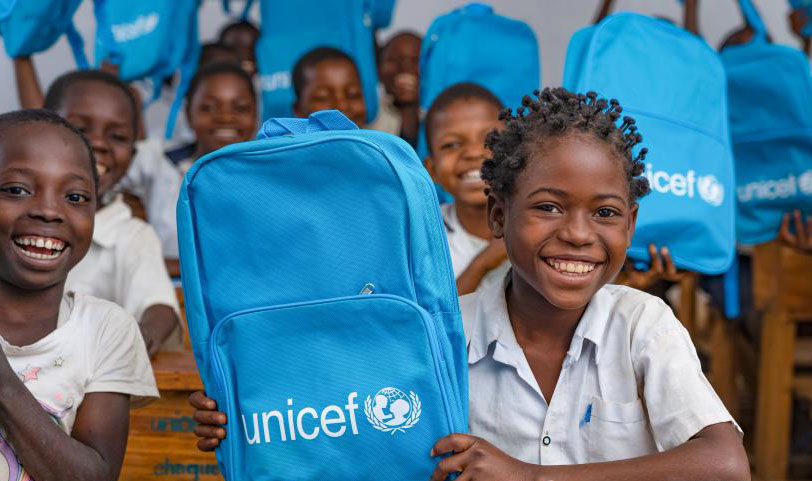UNICEF: Why Education Remains Nigeria’s Strongest Weapon Against Poverty

UNICEF: Why Education Remains Nigeria’s Strongest Weapon Against Poverty
The United Nations Children’s Fund (UNICEF) has reaffirmed that education remains the most powerful tool to break the cycle of poverty in Nigeria, particularly in the insurgency-hit North-East where millions of children remain out of school.
UNICEF Nigeria Country Representative, Wafaa Saeed, made this known while briefing reporters on the agency’s programmes in Borno, Yobe, and Adamawa States. She stressed that getting children back into classrooms is both urgent and critical for the survival of families and the future of the country.
“Education is an accelerator. Even mothers who never went to school want their children to learn. Getting children back to school prevents exploitation, child marriage, and lost futures,” Saeed said.
She narrated the story of Fatima, a 15-year-old mother in Maiduguri whose baby is recovering from malnutrition at the University of Maiduguri Teaching Hospital. Despite never attending school herself, Fatima told UNICEF that her greatest dream is for her daughter to complete her education.
According to UNICEF, Nigeria has the world’s highest number of out-of-school children, estimated at over 10 million. A majority of these are in Borno, Yobe, and Adamawa, where Boko Haram’s decade-long insurgency destroyed schools, displaced families, and left children vulnerable.
Saeed noted that the crisis is not only about access but also about quality learning. “Three out of four children in Africa who are in school cannot read or do basic mathematics,” she warned.
To address the challenge, she called for increased investment in safe classrooms, teacher training, and innovative solutions such as conditional cash transfers for poor families, solar-powered schools, and digital learning partnerships.
On child nutrition, Saeed emphasized the importance of early childhood care. “The first two years of life are decisive for growth and brain development,” she said, explaining that UNICEF is working with government and private sector partners to promote affordable, locally produced food for children under two years old.
Despite recent funding cuts, Saeed assured that UNICEF has reorganized to maximize available resources. “Nigeria is showing commitment, but the scale of needs is still greater than the response. We must accelerate and scale up,” she stressed.
She also praised young people in Borno who are leading campaigns on breastfeeding, immunization, and climate action through recycling. “Their efforts are proof of resilience and determination to rebuild society,” she said.
Concluding her remarks, Saeed reaffirmed UNICEF’s belief in the transformative power of investing in children. “Nigeria’s investment in its children will not only transform the country but also have a positive impact across Africa. Children are the future of this continent,” she declared.






